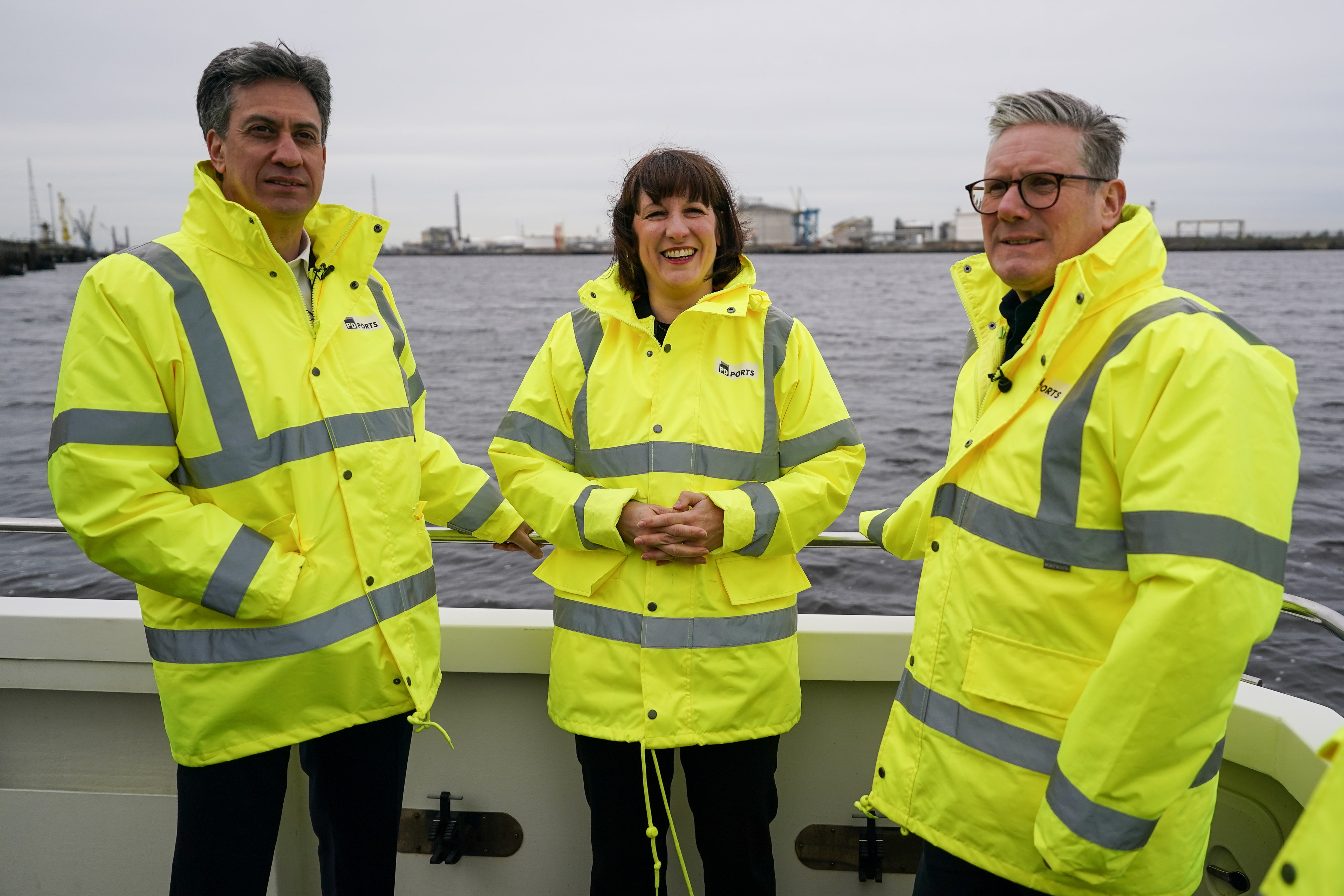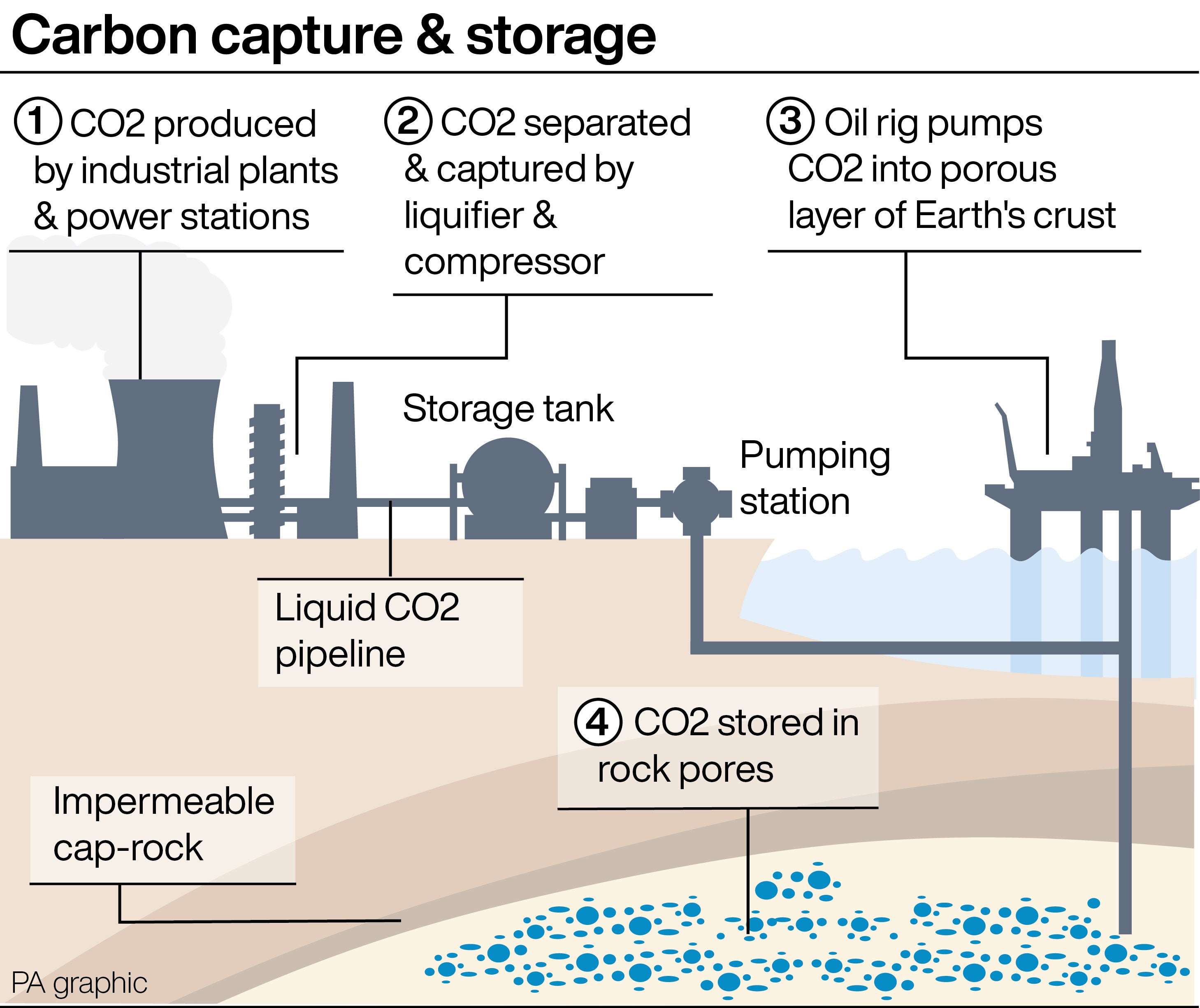Finally, Britain has entered the ‘clean energy’ age
The launch of a £22bn fund to invest in carbon capture technology will mark a new chapter in our nation’s history, says energy secretary Ed Miliband


On Monday, a 142-year chapter of British history closed as our last remaining coal-fired power station shut down for the last time. Today, in Merseyside and Teesside, we begin writing the next chapter in our energy story as we launch Britain’s carbon capture industry.
Coal fuelled our country for generation after generation, a journey that started in 1882 at Holborn Viaduct power station and ended this week at Ratcliffe-on-Soar. Coal didn’t just power homes and businesses – but shaped decades of work and pride for communities across the country. It is carved into our national story.
As the sun sets on the coal-fired age, people ask if the promise of good jobs that sustain communities has gone with it. The answer must be no. As we enter a new clean energy era, this government is determined to secure a new generation of good jobs in the industries that will power our future.
That is why we are today committing funding for Britain’s first carbon capture projects in Merseyside and Teesside. Today’s announcement has been more than a decade in the making. I was proud to kickstart the process of developing this technology back in 2009, and I am proud to agree to the commercial deals that will finally launch our carbon capture industry today.
Just as the transition away from coal has been driven by the urgency of ending its contribution to the climate crisis, the deployment of carbon capture is an essential part of reducing our carbon emissions. Experts from the Climate Change Committee to the International Energy Agency are clear it is critical to meeting our climate commitments.
By capturing carbon emissions before they enter the atmosphere and storing them deep beneath the seabed, this key climate technology will unlock the decarbonisation of industries from chemicals to cement and enable the production of low-carbon hydrogen. It will also enable the emissions from gas-fired power stations to be captured, which can play a role, alongside renewables and nuclear, in delivering clean power by 2030 and beyond.

Where we once led the way in opening the world’s first coal-fired powered station, this funding puts the UK on the path to lead the world in deploying carbon capture at scale. Britain is well placed to harness the geology of the North Sea, which has capacity to store 200 years of our carbon emissions, as well as the skills and expertise of our oil and gas workforce to be a world leader in an industry that will define the 21st century.
Over the last few years, we’ve seen the global race for clean energy industries accelerate as the US, EU and others invest now to secure the jobs of the future. For too long, Britain has fallen behind as others speed ahead.
Today’s announcement is part of the government’s plan to change that, working with the private sector to drive investment into communities left behind by decades of deindustrialisation. These two clusters will crowd in £8bn of private investment and create 4,000 jobs – and they are just the start. Establishing a fleet of carbon capture sites could support up to 50,000 good jobs around the country by the 2030s.

In our first three months in office, we’ve shown this government is in a hurry to deliver our mission to make Britain a clean energy superpower. We’ve already lifted the onshore wind ban, consented to large amounts of solar, launched Great British Energy, delivered the most successful renewables auction in British history and set out our plans to lift more than a million households out of fuel poverty.
We are moving at pace both because of the urgency of the challenges we face and our determination to seize the opportunities of the clean energy age. We will look back on this week as a turning point for our country – not just for the industry we are leaving behind, but the one we have started building.
Ed Miliband is secretary of state for energy security and net zero
Join our commenting forum
Join thought-provoking conversations, follow other Independent readers and see their replies
Comments
Bookmark popover
Removed from bookmarks